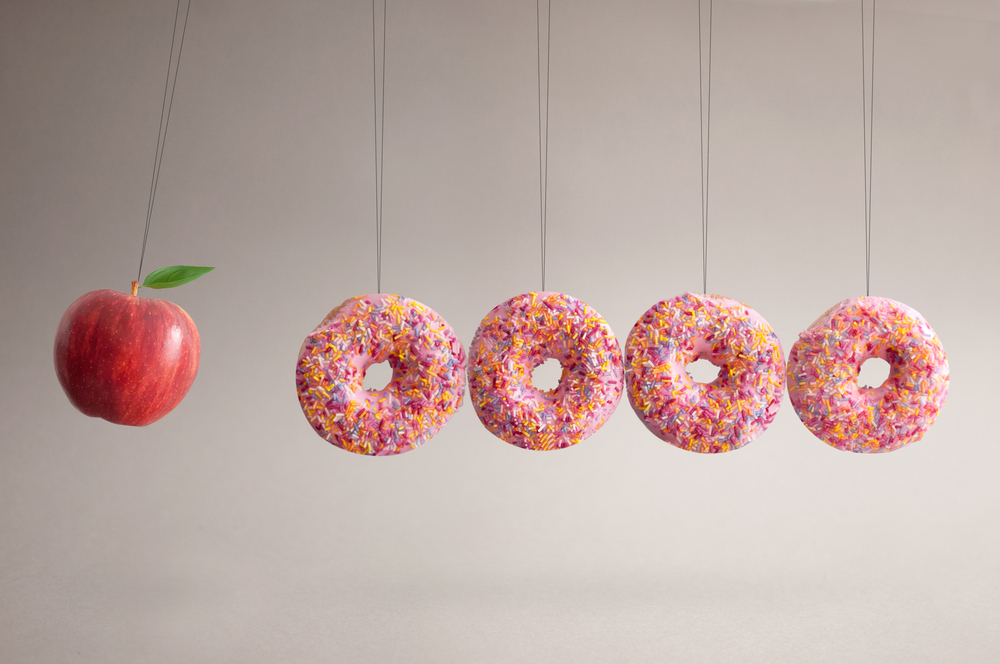Overindulged at Christmas time? You’re not the only one.
Warmer weather & holidays, often means more cocktails, snacks and take-outs. We’ve well and truly rung in the new year and the thought of finally looking after your health this year has kicked in. But, you ate way to much chocolate, lollies and cakes over the holiday period and now you have daily sugar cravings – How to stop?
This blog will help you discover more about Sugar cravings – How to stop them. Blood sugar imbalance, how it affects energy and how sugar can increase hot flushes. Then some tips and tricks on stopping or curbing sugar cravings.
Blood sugar imbalance – What you need to know:
Blood sugar is raised when you eat carbohydrates foods. Your body uses the carbohydrates to break it down to glucose to as fuel or energy.
Typically, your levels of blood sugar fluctuate throughout the day based on your activity and the foods you eat. A lot of people believe that monitoring blood sugar levels and keeping them in check, is mainly for diabetics. However, it is also for those without diabetes too. Keeping your blood sugar levels in a good range helps prevent long term effects as well as help you to run more efficiently day to day.
Let’s talk energy
When most people think of energy they think of a coffee or an energy drink.
Yes, energy comes from the food we eat too. To read more about energy boosting foods, click here to read one of my articles on this topic.
The brain runs primarily on glucose for energy. Interestingly, though more isn’t necessarily better. More glucose doesn’t mean more energy.
Studies have shown that where glucose levels were sharply elevated to around 300mg/dL over 20 minutes, the participants noted a significant decrease in energy. Their memory and attention were also negatively affected. Slower speeds of processing information were also noted. Some also experienced feelings of sadness or anxiety.
It was the quick spike in the blood sugar that linked to the reduced energy levels. Consequently, with affects on performance and memory.
If you think back to a big meal you have eaten – possibly at Christmas time? We often joke that you need a sleep after Christmas lunch. This is due to the post meal slump and a display of too much glucose in the body and hence similar effects as mentioned in the study.
It’s not only the big jumps or increases in glucose (glucose spikes) that can reduce energy levels though. Similar effects occur with the dips. Glucose dips occur either with individuals with diabetes when blood sugar levels drop or with people after a post meal glucose spike. A dip occurs, also referred to as reactive hypoglycaemia. Which often leads to low energy, feelings of tiredness and fatigue.
Does sugar imbalances affect menopause symptoms?
Sugar and sugar imbalances put an extra stress on the body. Stress can exacerbate perimenopause and menopausal symptoms too. Things like hot flushes, fatigue, insomnia, weight gain and mood issues can get worse. Likewise, increased sugar or dips in blood sugar can cause energy slumps too which often make choosing healthier options harder. Maintaining a consistent blood sugar levels can help with having healthy swaps.
A study conducted with over 6000 menopausal women showed, diets high in fat and sugar have shown an increase of 20% in hot flushes and night sweats. Likewise, another study revealed that women with higher glucose levels also reported more frequent hot flushes per week. It’s the increase in glucose levels that are linked to the increase on vasomotor symptoms. Also increased risk of cardiovascular disease too.
To read more about the causes of hot flushes, read my article here.
Sugar is addictive:
So the more sugar you consume, the more you want it.
Likewise, though the opposite is true as well. The less sugar you consume, the less you crave. Our bodies do need sugar to survive however not in the form of processed foods, lollies, chocolate, cakes & sugary drinks. What the body truly needs to produce energy is natural, unprocessed foods such as whole foods, vegetables, fruits etc.
It’s all the extras that add up:
Before delving deeper into how to beat sugar cravings, let’s look at the little things that add up. These hidden items, which we don’t realise….and often one of the simplest ways to reign things in.
It’s the added sugars in:
- Soft drinks
- Sauces
- Packaged or ready meals
- Sugar in teas and coffees or summer-time slurpees
Studies have shown that about a third of the sugar we consume is added sugar. This added sugar is what can put you at increased risk of heart disease, type 2 diabetes and other chronic diseases.
The good news is that you can get rid of sugar addiction and stop your sugar cravings!
Sugar cravings – How to stop? Here’s some tips:
Switch your beverages
What’s in your beverages?
One of the fastest ways to address excess sugar and then the need for more sugar is to take a look at your beverages.
Whilst black coffee or tea is the best option, it’s often not liked by many due to the bitter and strong flavour. So if going black isn’t for you then there is another option, use a small amount of milk instead. A simple and often effective way to reduce sugar in your day, particularly if you are having multiple coffees or teas daily.
Add in some cinnamon or cacao
Adding in cinnamon to your beverages is a great way to increase flavour. Bonus is that cinnamon has been shown to lower blood sugar levels too.
Try lighter roasted coffees over the darker roasted ones, as there will be less need for milk or creams to take away the bitterness. Also, cold brew coffee is another option as the cold brewing process gives a smoother coffee flavour and can be enjoyed without milk or cream.
Up your protein intake:
Protein has the ability to keep you fuller for longer. It also doesn’t spike your insulin levels. Therefore by ensuring adequate intake of protein at each meal, you’ll get more of sustained energy rather than the yo-yo effect which is where you are more likely to reach for the chocolate bar or sweet snack.
Swap your sweets
If you have cravings for sweets during the day, swap your sweet treats to something with more nutrients and that will keep you fuller for longer. Some swaps can include:
- Unsalted nuts with dried fruit and small amount of dark chocolate.
- Yoghurt with berries and added flaxseed meal.
- Apple slices with nut butter
Check in on your water intake:
For some Soft drinks and fruit juice can account to about 1/3 of their daily intake of sugar. Sugar can definitely sneak in this way. Some ways to combat this is:
- Go half juice, half water when drinking juice to reduce the sugar intake
- If it’s the fizz and bubbles you are after, then make your own fizzy water with a Soda stream and flavour with fresh lemon, lime or oranges.
- Or still to plain cold filtered water
Are you aware?
Have you ever wondered why you are eating sugar?
Is it because you are bored? As a comfort? Reward? Understanding the reasons why you get sugar cravings is the first step forward in creating change. If it’s due to boredom, can you do another activity instead? If it’s due to comfort or reward, can you find other ways to self soothe or reward yourself for your achievements that don’t revolve around food?
Eating excess sugar has many effect on the body including effects on performance, energy and the increase in peri-menopause/menopausal symptoms.
There are many ways to stop your sugar cravings. Whilst there isn’t one particular quick fix, a combination of awareness around the choice you make with food and the reasons behind the cravings can help you to stop or curb your sugar cravings.


